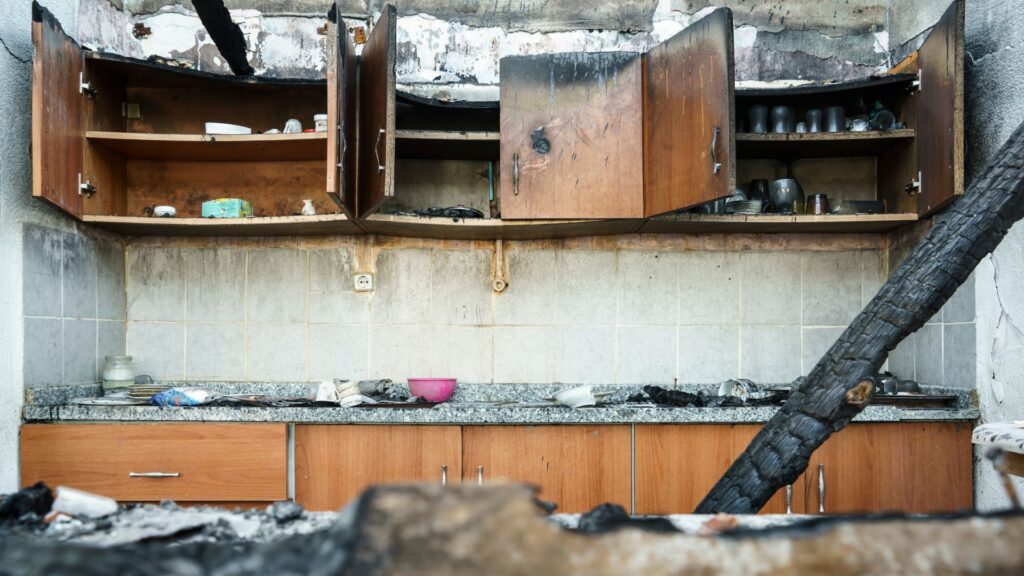
If you’ve ever experienced a property fire, you will know that one of the hardest things to do is sort through damaged belongings.
Regardless of whether the blaze occurs in a commercial property or at home, the loss of personal belongings can be overwhelming.
Sadly, even small fires can generate thick smoke that can permeate materials and leave irreversible soot stains. While professional cleaning companies like Vinci Response can help restore buildings and contents to their original condition, there will be some items that won’t be able to be saved. This blog will look at what should – and what shouldn’t – be salvaged from a fire.
What Can Be Saved Following A Fire Clean-Up?
The easiest things to save after a fire are those with hard, non-porous surfaces.
These can include:
Glassware
So long as it hasn’t been heated to the point of melting, glassware can be easily wiped down and cleaned with mild detergent solutions. Although it might smell smokey, the odour should be neutralised by using a mild detergent and soaking for a period of time.
Metal
Metal is another material that can withstand very high temperatures before being destroyed by fires. Cleaning with a mild detergent and soft abrasive should be enough to remove any stains caused by soot. The surfaces can always be sanded and repainted if necessary to remove scorching and help avoid rust.
Hardwood Floors & Furniture
Hardwood can be salvageable if it is dried thoroughly and there is no sign of mould. Oil soap can work wonders on any staining, and once sanded and refinished as required, the surfaces can often look good as new.
What Should Be Discarded After A Fire Clean Up
Sadly, many items cannot – and should not – be salvaged following a fire. As we will see, there are many reasons for this, but most commonly, it is due to potential health risks.
Food
You must be extremely careful regarding food following a home or commercial fire. The smoke odour can make many perishable items smell horrific, and the increased temperature can also make them unsafe.
Even if there are no apparent signs of charring or damage to the packaging, food can go bad with even the slightest temperature rise. For example, food left unrefrigerated may be spoiled if your electricity has been cut.
If freezer food is still cold and hard, this could be kept. But if there is doubt, discarding it would be safer.
Medicines And Cosmetics
Any medicines, cosmetics and hygiene products that have been damaged in a fire must be thrown away.
These sorts of products should be closely inspected for signs of soot, heat damage or fire extinguisher dust.
If you have to throw away any prescription medicine, make sure you call your GP immediately.
Clothing, Mattresses And Soft Furniture
When it comes to textiles, common sense can often dictate whether or not they can be salvaged.
Bigger items like mattresses and sofas may have suffered more damage than initially thought and could break up over time. In addition, these items retain the odour longer and may need to be disposed of for this.
Smaller items like clothes and bedding can sometimes be salvaged if they have not been badly burned and charred (although it’s worth being stricter with a baby or young children’s clothing).
Contact Vinci Response For Professional Cleaning Services After A Fire
Hopefully, this has proved a valuable guide to what can and cannot be kept following a blaze.
At Vinci Response, we know how distressing the whole process can be.
That’s why our expert teams are professionally trained to ensure that any properties devasted by fire are returned to their previous state as quickly as possible. They can offer advice as well as reassurance throughout the process.
So, whether you have been unfortunate enough to suffer from a fire at work or home, contact Vinci Response and see how our fire and smoke damage restoration services can help.
Call us on 03335 772 996 or email [email protected]